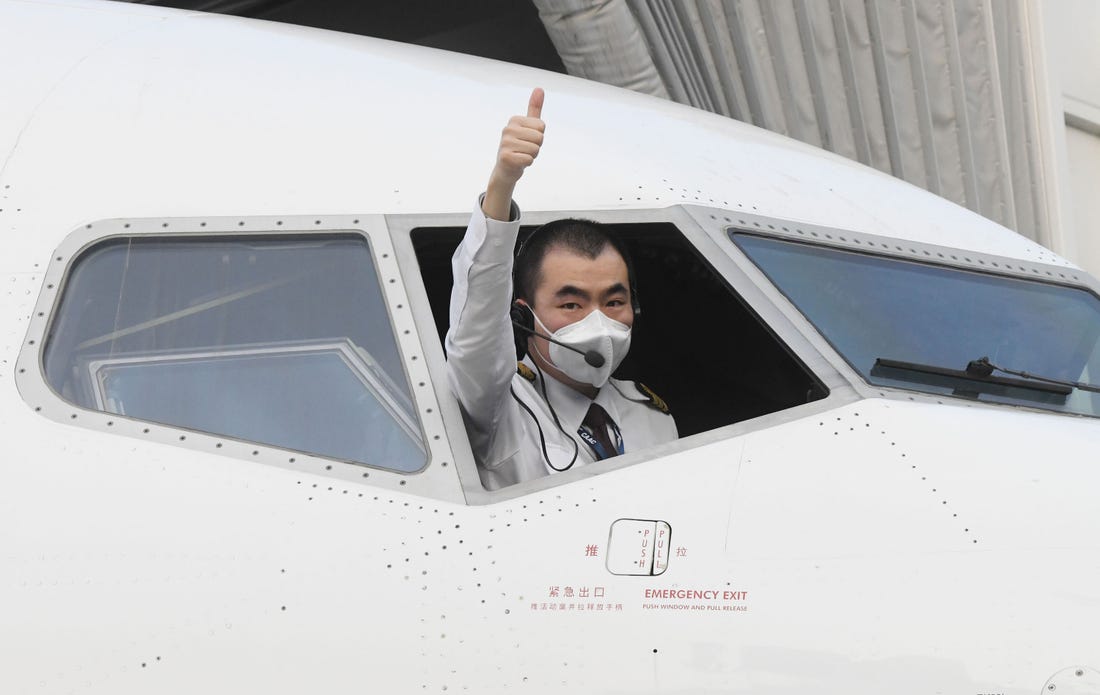STRAIGHT TALK by Hafeez Khan
Christopher Columbus, an Italian explorer, embarked on a voyage in August 1492. He was sponsored by the Catholic Monarchs of Spain. Largely self educated, Columbus had in depth knowledge in geography, astronomy and history. He planned to seek a western sea passage to East Indies. He hoped to profit from the lucrative spice trade. Instead on 12th October 1492 he discovered the New World. He landed on the Island of Bahamas.
Thinking he had reached his destination, he called the indigenous people “Indians”. This name persists till today, with variations. Very little was known about these parts of the world. The Colonial powers at that time were confounded and confused. It was a huge unknown, although later it turned out to be a bonanza for Britain, Spain and France racing to conquer and colonize.
There is a similarity between Columbus’s discovery and the events unfolding since January 2020. We got hit by a Corona Virus originating in Wuhan about which we had no knowledge. The world has been bumbling its way through, learning and innovating as the crisis unfolded.
In past three months valuable data has been accumulated on COVID-19 enabling scientists around the world to find a way out of this global gridlock. The conclusions reached thus far are not encouraging. This virus is wickedly contagious, it attacks all age groups, is unaffected by outside temperatures, and the carriers don’t necessarily display symptoms.
The preventive measures worked where strictly enforced. Many countries missed the bus first time around. Look at the suffering that spread in USA, Britain, Italy, Spain and many other countries. The need to isolate the infected, tracing their recent contacts and widespread testing is work in progress. It is limited by a country’s resources, discipline and commitment. These steps are a prerequisite to restarting economies and prevent re-occurrence.
No therapeutic solutions of significance have been found yet and vaccines are a while away. It is a daunting challenge. One thing seems to have clearly emerged. This virus is not going anywhere; it will take its own sweet time. However restrictions are beginning to take its toll. Folks are suffering from COVID-19 fatigue.
Isolation is changing human behavior. Being cooped up is putting pressure on relationships. Differences become larger and compatibilities shrink. Continuous state of fear is paralyzing. Online living is fast overtaking human interaction. Folks may face difficulties reentering normal life, whatever the new normal will be.
The real issues are far larger. The shut down has brought the economic engines to a grinding halt. Lost jobs and no income are terrifying. National coffers are running on empty. Deficits are ballooning. This downhill spiral needs correction. It cannot be sustained for long. The economies have to re-open. The billion dollar question is when and in what manner?
A few nations picked up the cue early. South Korea, Germany and China are stellar examples. Even Canada seems to have dodged the bullet. The old proverb “a stitch in time saves nine” explains it all. They recognized and reacted early. This halted the spread. They are re-opening their economies with checks and balances.
The hardest hit is USA. It has less than 5% of global population, yet nearly 34% of infections are in USA. To be fair, US tests are highest in the world, thereby more discoveries, but still the enormity of challenge is huge. President Trump lost a couple of valuable months because he was pre-occupied with his senate impeachment. In this case timing was everything.
He and his team felt they had wind under their wings with a growing economy. Re-elections topped the agenda. They treated the virus as an aberration. It was not to be. The mishandling and reckless commentary, a Trump hallmark was confounding; the impact will be seen in November. Whatever the results, he failed to emerge as decisive, caring, and a healing leader.
Globally, leaders are in a hurry to restart their economies to end this massive hemorrhaging brought on by COVID-19. They realize the risks involved in navigating this tight, curvy road. This tight rope walk requires avoiding a spike in COVID-19 and getting people back to work.
In Pakistan the circumstances are no less dire. For an economy as fragile as ours, long term lockdown is not sustainable. We have to co-exist with the virus. There are many road blocks. Majority of the work force is hand to mouth. They need to earn to feed their families. Employers need to restart. Restrictions on public transport need to be removed.
On the other hand crowded work places could become hot spots for spreading the virus. The biggest road block is our anemic health system that cannot handle a surge of new patients. Over seven decades of our existence, our corrupt and inefficient systems have gone bad to worse. The foundations are rotten, eaten by termites; there is no strength in this shaky and weak façade. The death of a doctor recently in Karachi, who went pillar to post just to get admitted into a hospital, says it all.
There are no easy choices for leaders around the world. Prevailing numbers indicate that the death rate of infected stands around 7%. Very few leaders will admit to it, but it may boil down to a simple choice. Do we confine the population and face an economic collapse or we move forward to re-start the economies treating deaths as an acceptable loss?


Leave a Reply